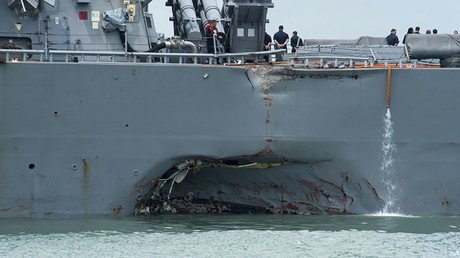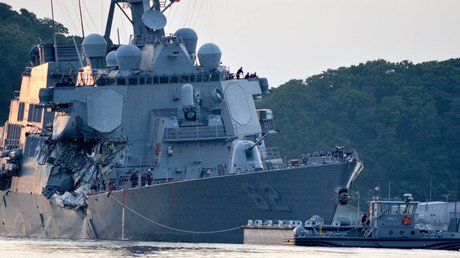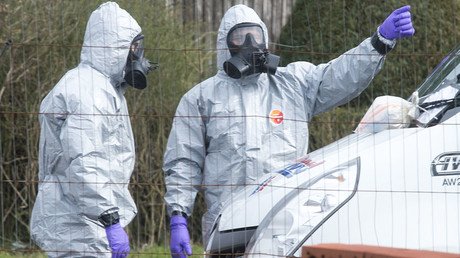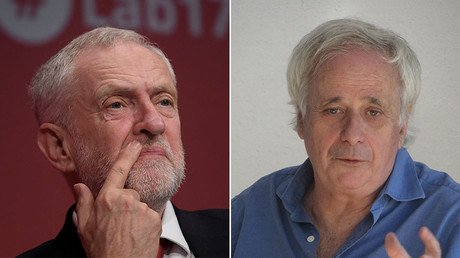Eastern revival: UK opens Gulf naval base as Western relationships hit the rocks
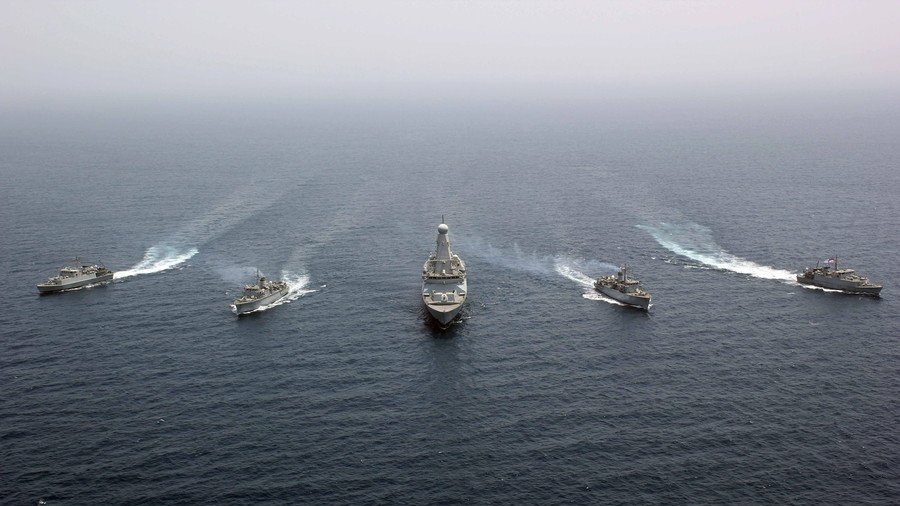
Britain is attempting to shore up ties in the east before leaving the European Union, extending its reach with allies from its former empire.
As the UK’s ‘special relationship’ with the US seems as important to Donald Trump as a mate date with Hillary Clinton – and the EU rails against Brexit – Prime Minister Theresa May is looking for friends.
The nation is using what is left of its dwindling military to get them. Senior military figures this week opened a permanent base in the Gulf for the Royal Navy.
The occasion is being hailed as a “big deal” for Britain. The navy’s new HMS ‘Jufair’ base is the first to open in 50 years. Somehow, the Bahraini government footed the bill for the majority of the £40 million (US$56 million) base.
The head of Britain’s Joint Forces Command, General Sir Christopher Deverell, said the base is reflective of the new “global Britain.”“This is a big deal,” Deverell told the Telegraph.
“It is fairly obvious that the threats to UK forces seem to be on the increase. If you want to deal with the threats, you cannot do so from a distance. You have to be present.”
Special forces will use the base – the first permanent UK military home in the Gulf since 1971 – for operations across the Middle East, including in Iraq and Afghanistan. Aside from the HMS ‘Queen Elizabeth’, launched after a £3.1 billion spend, the base is the first piece of good news to come from the Royal Navy – since the British government has announced nothing but cuts.
Currently, Defence Secretary Gavin Williamson is tasked with plugging a £30 billion black hole in the budget. The size of the service is shrinking rapidly. It has 73 commissioned ships, 20 of which are major surface combatants, along with 10 submarines. Today, the service has 29,000 personnel compared with at the end of Second World War, when the Royal Navy had 861,000.
Despite the naval battles, Downing Street appears set on using what military prowess it has left to ensure ties with other nations. The reopening of a base in the Gulf is therefore seen as a major commitment by Britain to reviving its military presence overseas in the run-up to Brexit.
“I get a real sense of the desire of the UK to do our bit for the international rules based order,” said Deverell. “We need to do our part to ensure the sea lanes are kept open.”
The British have kept a presence in Bahrain over the decades. The new base, however, will be a relief to Bahrain as the government grows nervous over Iran. The threats by US leader Trump to end the JCPOA – the agreement stopping Iran developing nuclear weapons – could spark retaliation in the region.
British forces would be called upon to help keep the region’s trade lanes open if Iran went rogue and blocked the Strait of Hormuz, the narrow waterway in the Gulf which is vital to maintaining oil supplies to the West. Navy minesweepers already patrol the region to prevent such an eventuality.
“Bahrain has always been very important to the UK in helping to maintain Gulf security,” said Deverell. “This is a place where we are going to stay for a long period of time. It will change the way we think about the Gulf because now we have a permanent presence.”
In the early 19th century, Britain signed a treaty with Bahrain’s ruling Al-Khalifa family to combat piracy and slavery in the region. The arrangement lasted until the Labour government of Harold Wilson implemented its policy of withdrawing all British forces based east of Suez, completed in 1971. The navy currently has bases in Singapore, the Falklands, Cyprus, Gibraltar and Diego Garcia.
